Conservation
The David Sheldrick Wildlife Trust: Our Foster Baby Orphan Elephant "Faraja" in Kenya
Friday, 28. September 2012, marked a very special day in our office. This was the day when we became foster parents of the orphan elephant "Faraja" whose tragic loss of his mom has deeply touched our hearts. Giving the gift of life to an orphan baby elephant through a donation to The David Sheldrick Wildlife Trust in Kenya makes us all very proud.
1. Meet our Foster Baby Elephant "Faraja":
- Gender: male
- Date Born: Saturday, January 28, 2012
- Location Found: Amboseli National Park, Kenya
- Age on Arrival at the Orphanage: 7 Months
- Comments: A young albino was reported without his mother in Amboseli, who is thought to be a victim of retribution killing
- Reason for being Orphaned: Man Made Cause for Separation
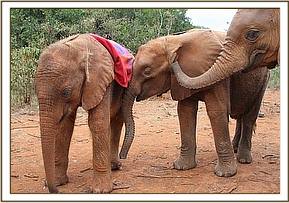
Faraj (middle) with Barsalinga and Naipoki photo taken on 9/12/2012
"Faraja" is a very special little elephant with a single difference to all the other orphans the David Sheldrick Wildlife Trust has rescued thus far. Normally elephants are born with dark grey skin pigmentation and black hair and eyelashes, but "Faraja" is one of only two elephant calves born in the Amboseli National Park in Kenya with distinct albino colourings. At birth the Amboseli research team observed that Faraja’s white hair and pale colourations were much more visible, having darkened slightly with age.
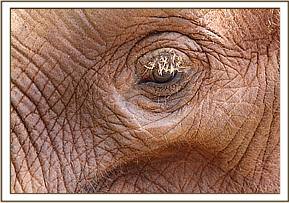
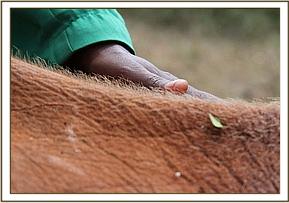
On arrival at the camp, "Faraja" was extremely thin and weak for his size. "Faraja" now has a second chance at life and is young enough to embrace his new family with a new future, and has settled in extremely well. He is regaining strength and remains with the love and warmth of other elephants around him.
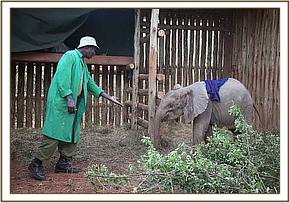
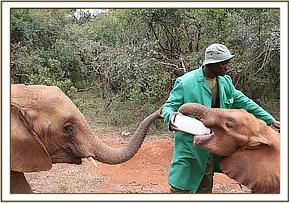
2. The David Sheldrick Wildlife Trust
The David Sheldrick Wildlife Trust is a small charity which was established in 1977 to honour the memory of a famous Naturalist, Mr David Leslie William Sheldrick MBE, the founder Warden of Tsavo East National Park in Kenya. It is here where he served from its inception in 1948 until his transfer to Nairobi in 1976 to head the Planning Unit of the newly created Wildlife Conservation & Management Department.
David died 6 months later, but his great legacy of excellence and the systems he installed for the management of Tsavo in Kenya and wildlife generally, particularly in the sphere of wildlife husbandry and ethics, lives on.

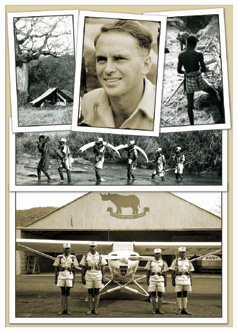
3. Elephant Orphans

Daphne Sheldrick at The David Sheldrick Wildlife Trust was the first person in the world to successfully hand rear newborn fully milk dependent African Elephant orphans, something that spanned 28 years of trial and error to achieve.
By the year 2008, the Trust had successfully saved and hand-reared over 82 infant African Elephant calves, two from the day of birth. At present, over 40 of the Trust’s hand-reared elephants are fully established and living free amongst their wild peers in Kenya's Tsavo National Park, some returning with wild born young to show their erstwhile human family.
Based at two established Elephant Rehabilitation Centers within Tsavo East National Park others are still in the gradual process of re-integration with yet others in early infancy at the Trust’s Nairobi National Park Elephant and Rhino Nursery. The Trust has trained a team of competent Elephant Keepers who replace the orphans’ lost elephant family until the transition to the wild herds has been accomplished, something that can take up to l0 years since elephant calves duplicate their human counterparts regarding development through age progression.
Those elephants who were orphaned too young to recall their elephant family remain dependent longer, but all the Trust’s orphans eventually take their rightful place amongst their wild counterparts, including those orphaned on the day they were born.
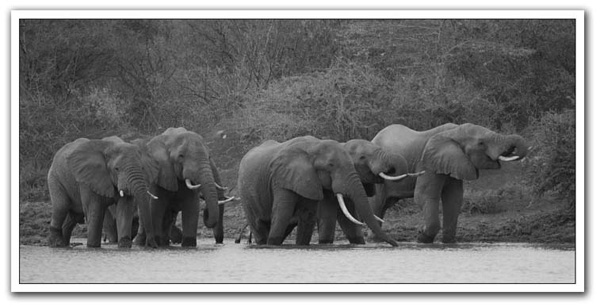
4. Contact details
- The David Sheldrick Wildlife Trust
- Postal address: P.O. Box 15555 Nairobi Kenya
- E-mail address: rc-h@africaonline.co.ke
- Contact names: Angela and Dr Daphne Sheldrick
- Facebook: http://www.facebook.com/thedswt
- Twitter: http://twitter.com/DSWT
